The newly made mother has a fragile psyche. She is very vulnerable and often worried, even if it seems to us that there is no reason for this. Her peace and sleep can disappear only because someone made a harmless remark to her. What can we say about those well-wishers who are always ready to poke a mistake with their nose and teach how to properly deal with a child. Do you need to listen to these tips, and are all the teachings so good?

For most mothers, especially very young ones, the first year of a child’s life is an uninterrupted exam for their parent’s “position”. In this case, the examiners are not only family members and doctors, but also strangers who for some reason decided to share personal experience regarding education and baby care (feeding, swaddling, bathing). Moreover, advisers have such different views on these issues that they directly contradict each other.
Your mother tells you how to correctly and how often you need to apply crumbs to your breasts, but from the first days of your life you yourself have fed you “Baby”, and your mother-in-law constantly quotes Spock. The spouse's sister is a family expert of the highest qualification only because she works as a nurse in the adult neurosurgery department. And the neighbor with three children is an ardent supporter of natural parenthood. And all advise, teach and point out errors.
There is only one rule - do not listen to everything that is said, even if your adviser has more experience than you and looks very competent.
1. We need to weigh the baby daily before and after feeding
By listening to this advice, you will lose peace of mind. And the excitement leads to the release of adrenaline into the blood, which suppresses the effect of oxytocin, a hormone involved in the production of milk. Haste anxiety can also be transmitted to the baby.
The weight of the baby increases unstably. He pisses and poops, eats and spits up. Moreover, he can suck out more milk in one feeding, and less in another. Usually, children eat a lot after a walk, bathing or before a night's sleep.And after awakening, their appetite does not have time to play out, so feeding after sleep is more a way to talk with mom, to be closer to her.
Weighing the baby enough once a month, and if in doubt about a good increase - once a week. You need to do this on the same scales (most mothers do this at a pediatrician's appointment).
We also read: What is the normal weight gain in newborns?
2. A good mother should breastfeed her baby for at least a year
The fact that breast milk is the best that a mother can give her baby is true. But breastfeeding should bring pleasure not only to the baby, but also to his mother. Otherwise, nothing will work. You do not need to give the baby a breast just because your mother wants it so. Do not blame yourself if you feed him a quality mixture. But you spend a lot of time with him and do not deprive him of bodily contact with you?
3. The child must not be accustomed to a dummy, otherwise the bite will go bad
Previously, dentists and orthodontists were really against dummies, which, in their opinion, contributed to malocclusion. But now they themselves are in favor of using them. They only recommend it not for regular (round) nipples, but for special ones (a bit), with a slightly sloping top. The use of an orthodontic dummy is a good prevention of the underdevelopment of the lower jaw, because for its capture the child must push the lower jaw forward.
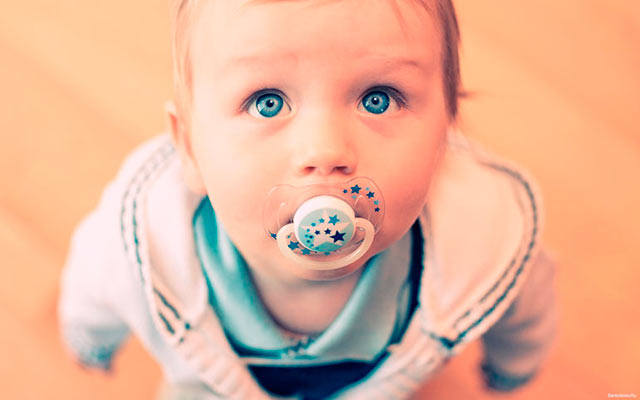
In the baby in the first months after birth, the sucking reflex prevails over all others. You can satisfy it by giving a dummy after feeding. A sense of proportion is important here. A growing and developing child needs to know the world, tasting everything that falls into his hands. He will need to learn to express and control emotions, as well as develop his own voice. And for all this, his mouth should be free.
According to some experts, it is better that the baby sucks a finger. Then he will have to pull him out of his mouth to pick up objects, hug and learn to crawl. And adults will not be able to use such a “pacifier” in order to make the house quiet.
We also read: how to wean a baby from a nipple
4. That the child was not dependent and capricious, he needs to be allowed to cry
Today, science knows more about children than it did when everyone was trying to imitate Dr. Spock. For harmonious growth and development, children need not only a strict daily routine and proper nutrition, but also affection for loved ones, care and human warmth. Scientists have proven that satisfying all the requirements of a newborn, which he expresses with the help of crying, contributes to the development of a sense of security. Namely, it forms in a baby such qualities as independence and self-confidence.
In the first three months of life, it is especially important to respond immediately to any crying of the newborn. Be sure to pick it up! To calm some children, it’s enough to hear their mother’s voice, while others need to be constantly carried on their hands, in a backpack or sling. It depends on the temperament of the baby, the psychological atmosphere in the family, as well as on the internal state of the mother. Therefore, she, like all other family members, must be calm. Is it possible to stay calm if the baby, red from the strain, roars heartbrokenly in the bed, and his mother, having listened to the "advice" of the elders, sits in the bathroom and convinces himself that all this is an important condition for the formation of a complete personality.
We also read: 5 good reasons for baby tantrums
5. You need to walk with the child daily and in any weather
Walking in the fresh air, especially outside the city or in the forest park, is very useful for both the baby and mom. But everything needs a measure. If there is severe frost on the street, it is unlikely that anyone will want a picnic. Do not blame yourself if you did not go for a walk because the street is nasty drizzle, strong wind, blizzard or sweltering heat ... You are a mother, not a Viking.
[sc name = ”rsa”]
6. The first lure should be administered at 3 months
About 20 years ago, pediatricians recommended diversifying the baby’s menu as early as 3 months of age.From this time, it should include vegetables, fruits, meat, fish and other products. However, studies conducted in the last 10-15 years have shown that the introduction of most products in the baby’s diet for up to 5 months increases the risk of allergies. Especially dangerous in this regard are fish, eggs, some vegetables and fruits, as well as products containing gluten. Today, WHO claims that the best nutrition for an infant under 6 months of age is breast milk.
We also read: when to introduce the first lure
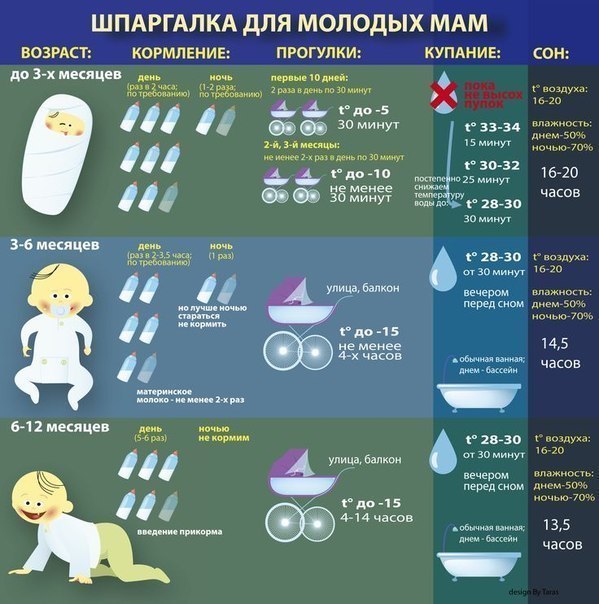
7. Food cooked at home is healthier than canning lure from the store.
Do not look for excuses if you decide that you will feed the baby with baby food from the store. Mashed jars has a balanced composition, calculated on the basis of the needs of children of different age categories. It contains exactly as many proteins, vitamins, sugar, salt and other components as the baby can absorb. If you combine baby food with breastfeeding, this is generally ideal. If you feed the crumbs with the mixture, then you can always diversify the store "purees" with something of your own: a piece of fruit, home-made cottage cheese, casserole or mashed berries. But certainly baby food from cans is safer for a child than adult food from a common table.
We also read: The first lure: to cook or buy - 9 facts about nutrition from jars and homemade food
8. Bathing should precede a night's sleep
There are no strict rules regarding this issue. Some babies like to splash around in the bath in the evening, while others like in the afternoon (and still others like to take a shower). The thing is that water affects infants differently. It calms and relaxes some, and invigorates others. Therefore, you better know when to bathe your baby. It is only important that bathing is not right after eating. And even more so, you do not need to wait until nightfall if the baby gets dirty, or if he wants to cool off on a hot summer day.
We also read: how to bathe a newborn
9. You can bring down the temperature by bathing the baby in water, the temperature of which is 2about below the thermometer
The opinion of pediatricians agrees that this is an unsafe and ineffective method of controlling heat. An increase in body temperature is a protective reaction of the body that helps to cope with the disease faster. But the temperature is too high (above 38 about for baby) is dangerous, therefore it should not go unnoticed.
Sometimes body temperature rises from overheating. It happens if the baby is too warmly dressed. Put the thermometer 30 minutes after removing excess clothing from it (leave a body or diaper on it to prevent a large loss of moisture, which can even cause dehydration). If the temperature remains high, and the child is 2 months or more, then give him an antipyretic (infant Paracetamol or Nurofen). If this does not help, then call a doctor at home. Medical assistance is also needed for diarrhea and vomiting, and if the baby is not yet two months old.
10. The child should walk "on a large scale" at least once a day
Stool frequency in infants varies within very large limits. And this is normal. Some children empty their intestines up to 7-8 times a day, while others - 2-3 times a week. This does not mean that the baby has problems. But symptoms of constipation you must know. These include dense pea stools and pain during bowel movements (the baby is crying).
To eliminate constipation, which happens, for example, after the introduction of complementary foods, you can use a circular massage of the abdomen or gymnastics. And if the baby does not eat anything except breast milk, then the mother should check her menu. For babies on artificial feeding in this case, special milk mixtures are shown, which include dietary fiber - prebiotics.
11. The sooner you accustom a child to the pot, the better
So that the baby can independently observe hygiene and cleanliness, he must at least be able to control his body, in particular, the muscles of the anus and sphincters of the rectum. But conscious control over them is formed by about 2 years (plus or minus several months).Modern pediatrics compares the early planting of a child on a pot, which was so promoted earlier, with training. This is unnatural, because this approach does not take into account the individual growth rate and development of the baby.

It is good that the times when one of the conditions for taking the baby to the nursery was his ability to use the pot on his own, has already passed. However, our grandmothers and mothers still recall horror stories about how children who did not want to poop twice a day were given enemas, tubes and even pieces of soap. Keep your baby's ass away from those who have remained a supporter of such methods.
We also read: how to teach a child a potty
12. In order for the baby to learn to walk faster, it must be put in the walker
Question one: why rush? The time will come and the child will go by himself. If you are so eager to see the first steps, then you can encourage the baby's energy in other ways.
Question two: are walkers so safe? In this regard, the opinions of pediatricians were divided. Some believe that this is a harmless device, while others are sure that it not only reduces the family budget, but also increases the risk of incorrect posture. In a child, the center of gravity shifts in the walker, so when learning to walk, it will be difficult for him to maintain balance.
It is also believed that if you abuse a walker, you run the risk of problems such as flat feet or curving legs. Perhaps the risk is not worth it, and it is better to purchase a car or trolley that the baby can push in front of him. However, if your child has already managed to make friends with walkers, you can not upset him, forcing him to forget about this "fun". It is enough to moderate the time that the peanut spends in them: no more than 30 minutes a day.
We also read:walkers PRO and CON
13. By the first year, the child should already learn to walk
This is being said by everyone around. What they just do not say to mother walking with a one-year-old child, it is important to sit in a stroller! People are sure that in a year it’s time for children to play catch-up, as it should be for everyone at this age. However, the concept of individual development has not yet had time to take root in the minds of our fellow citizens: the child “must” - and this is the point.
It’s not necessary to make a guilty face every time and explain to the unenlightened “adviser” that the time when the baby will start walkingdepends on many factors. They include not only muscle tone, but also temperament, as well as the desire of the child himself. According to statistics, the average age at which children begin to take their first steps is 12-15 months, but not 9-10, as they try to convince you.
Keep calm and do not get into a skirmish with advisers and lovers to debate near the sandbox. This will help you with routine examinations by a pediatrician whose opinion you trust, as well as modern literature for young mothers. It doesn’t matter what others consider “right”: the main thing is that your baby is full and cheerful.
We also read:


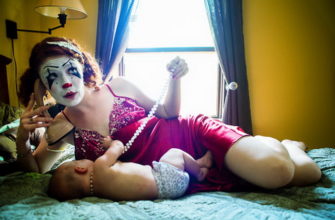

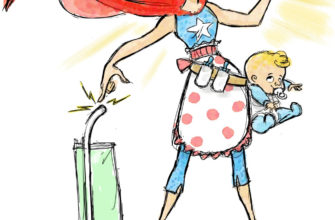

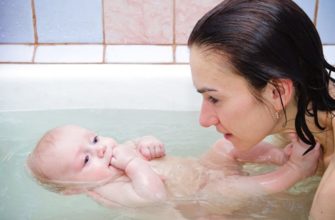


I completely disagree with the opinion that the first lure should be administered at 3 months, a child at this age does not need additional nutrients, he needs his mother’s milk or a mixture. I introduced lure closer to 8 months only.
From my own experience I will say that you need to follow these tips so that the child and mother are comfortable. This is the health of the baby. The most important thing is that there is a daily routine, to observe it, then many problems can be avoided. I was breastfeeding my daughter up to 2 years old, there was milk, the child did not bite, so it was convenient for me and my daughter, the food was always with me, as they say, it is not necessary to warm. Only here weaning from the chest was difficult, naughty greatly.
With all due respect to the experience of the older generation, I ignored many of my mother’s advice, which broke many of her stereotypes. How is it - to buy food for the baby in jars! This is not permissible! And I bought and the baby ate with pleasure and grew up healthy. And there are many such examples.
complete nonsense
I completely agree with these thirteen harmful tips. This is mainly what people of the older generation say, my mother and grandmother, they constantly say that one of these tips. Dear moms, listen less to moms and grandmothers.
it feels like it's some kind of ordering ...
bullshit is not the right word
What is breast milk food in two years? By the year of feeding, they are reduced to one per day, the rest is “adult” food.
And yes, weaning older babies is even harder
They would have fed before school, which is already there 🙂